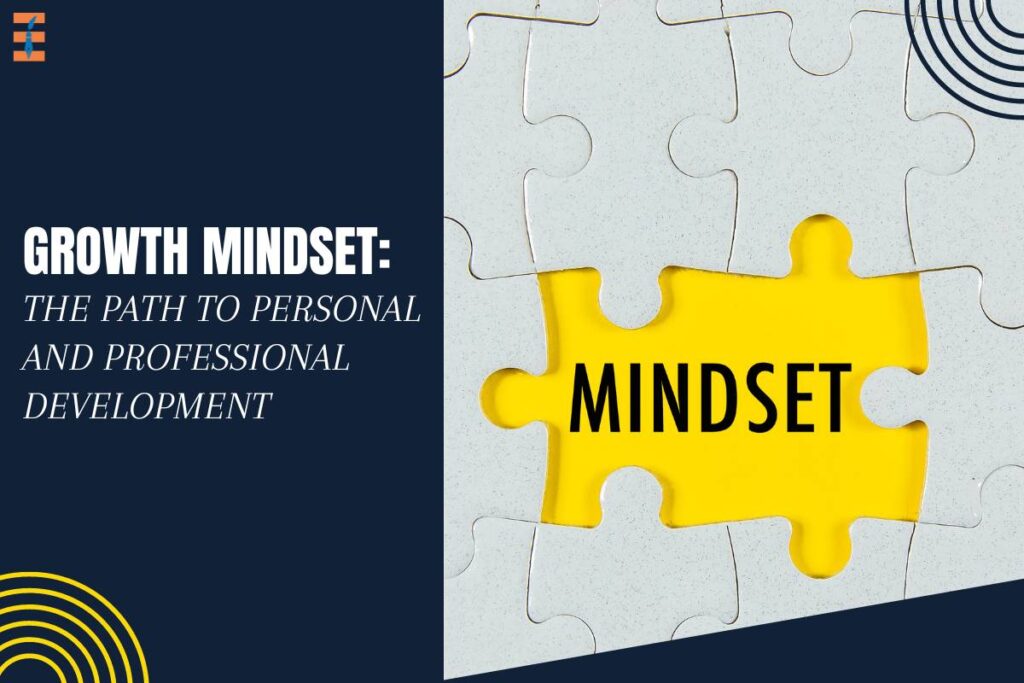In the journey of personal and professional development, one concept stands out as a guiding principle: a growth mindset. Coined by psychologist Carol Dweck, the idea of a growth mindset has transformed the way individuals approach challenges, setbacks, and achievements. It’s not just a theory; it’s a powerful tool that empowers individuals to thrive in various aspects of life. This article explores the essence of this, its implications, and practical strategies to cultivate it in our lives.
Understanding Growth Mindset:
It is the belief that abilities and intelligence can be developed through dedication and hard work. In contrast, a fixed mindset believes that traits such as intelligence and talent are innate and unchangeable. Individuals with this mindset embrace challenges, persist in the face of obstacles, see effort as a path to mastery, and learn from criticism. They view failures as opportunities for growth and are inspired by the success of others.
Implications of Growth Mindset:
1. Resilience
People with this mindset are more resilient in the face of adversity. Instead of being discouraged by failure, they see it as a stepping stone toward improvement. This resilience enables them to bounce back stronger and more determined than before.
2. Continuous Learning

Embracing it fosters a love for learning. Rather than seeking validation through success, individuals focus on the process of learning and development. They are open to new experiences, seek feedback, and constantly strive to expand their knowledge and skills.
3. Achievement
Studies have shown that individuals with a growth mindset tend to achieve more in various domains of life, including academics, career, and personal relationships. By believing in the power of effort and perseverance, they set ambitious goals and work diligently to accomplish them.
4. Innovation
In a rapidly changing world, innovation is key to success. It encourages creative thinking and experimentation. It enables individuals to embrace change, adapt to new circumstances, and explore unconventional solutions to problems.
Cultivating Growth Mindset:
While some people naturally gravitate toward this mindset, it’s a trait that can be developed and strengthened over time. Here are some practical strategies to cultivate a growth mindset:
1. Embrace Challenges
Instead of avoiding challenges, seek them out as opportunities for growth. Step out of your comfort zone and tackle tasks that push you to expand your abilities.
2. Learn from Failure

Rather than viewing failure as a setback, see it as a valuable learning experience. Analyze what went wrong, identify areas for improvement, and adjust your approach accordingly.
3. Focus on Effort, Not Just Outcome
Shift your focus from the result to the process of learning and development. Celebrate your efforts and progress, regardless of whether you achieve your desired outcome.
4. Adopt a Growth-Oriented Language
Pay attention to the way you talk to yourself and others about abilities and achievements. Instead of saying “I can’t do this,” say “I can’t do this yet.” This subtle shift in language reflects a belief in the growth potential.
5. Seek Feedback
Actively seek feedback from others and use it as a tool for improvement. Be open to constructive criticism and view it as an opportunity to learn and grow.
6. Cultivate a Love for Learning

Approach every experience with curiosity and eagerness to learn. Whether it’s reading a book, attending a workshop, or trying out a new hobby, see every opportunity as a chance to expand your knowledge and skills.
Conclusion:
In a world that is constantly evolving, embracing a growth mindset is essential for personal and professional success. By believing in the power of effort, resilience, and continuous learning, individuals can overcome obstacles, achieve their goals, and lead fulfilling lives. Cultivating this mindset requires dedication and perseverance, but the rewards are well worth the effort. So, let us all commit to fostering a mindset of growth and embrace the endless possibilities that lie ahead.
FAQs:
1. What is the difference between a growth mindset and a fixed mindset?
Ans: It is the belief that abilities and intelligence can be developed through dedication and hard work, whereas a fixed mindset is the belief that traits such as intelligence and talent are innate and unchangeable. Those with a growth mindset embrace challenges, persist in the face of setbacks, and view failure as an opportunity for growth, while those with a fixed mindset tend to avoid challenges, give up easily, and see failure as a reflection of their abilities.
2. Can anyone develop a growth mindset, or is it something you’re born with?
Ans: While some individuals may naturally lean toward this mindset, it is a trait that can be developed and strengthened over time. By adopting certain attitudes and behaviors, such as embracing challenges, learning from failure, and seeking feedback, anyone can cultivate this mindset and reap its benefits in various aspects of life.
3. How can I help my children develop a growth mindset?
Ans: Parents play a crucial role in the development of this mindset in their children. Encourage your children to embrace challenges, praise their efforts rather than their innate abilities, and teach them to view failure as a stepping stone toward improvement. Model a growth mindset by demonstrating resilience in the face of setbacks and emphasizing the value of continuous learning and perseverance.
4. Can a growth mindset improve performance in academics and careers?
Ans: Yes, numerous studies have shown that individuals with this mindset tend to achieve more in academics, careers, and other domains of life. By believing in the power of effort and perseverance, those with this type of mindset set ambitious goals, work diligently to accomplish them and bounce back stronger in the face of adversity. This resilience and determination often lead to greater success and fulfillment in both personal and professional pursuits.
5. How can organizations promote a culture of growth mindset among employees?
Organizations can promote a culture of this mindset by providing opportunities for learning and development, fostering a supportive and inclusive work environment, and rewarding efforts as well as outcomes. Encourage employees to take on challenges, provide constructive feedback and coaching, and celebrate learning and progress. By prioritizing growth and development, organizations can cultivate a motivated and resilient workforce that thrives in today’s dynamic and competitive landscape.
Also Read: Top 10 Universities in Boston

